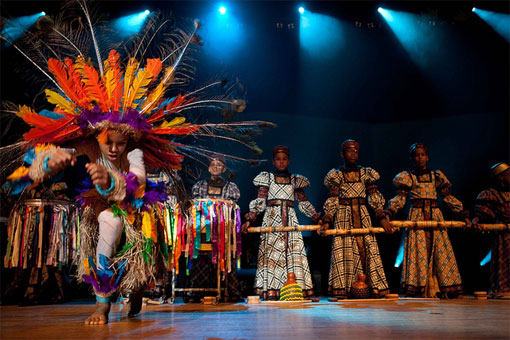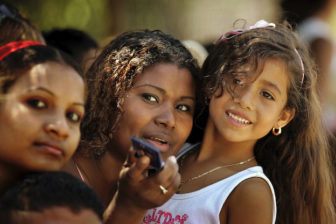Afro Latinos continue to make significant strides in furthering their integration across the Americas. Judith Morrison, senior advisor in the social sector of the gender and diversity unit at the Inter-American Development Bank talks with AQ online about how African descendant communities are using technology to increase inclusion as well as the role of government policies.
Interview by Wilda Escarfuller
Americas Quarterly Online: How have attitudes among young Latin Americans of African descent have changed in the past 10 years with regard to their own African heritage?
Morrison: In the 1990s when I started working with African descendant communities in Latin America, there was no common vocabulary to describe the experience of African descendent people throughout the Western Hemisphere. Most young people who were becoming aware of their cultural identity self-identified using terminology that was based on their individual community or region. A sense of the interconnectedness of the African-descendent experience throughout the Americas is now much more common-place particularly among young people. One of the main factors for this awareness is networking technology that allows multilingual African descendant young people from around the region to share their experiences and concepts of identity.
AQ: Broadly speaking, what is the sentiment of Afro-Latinos in the region today?
Morrison: African descendants have moved from invisibility to recognition by their governments, international organizations and the media. Despite this greater recognition there are still persistent inequalities in the region and African descendants face significant gaps in almost all aspects of socio-economic life. African descendants in Latin America make up about 30 percent of the overall population, but still represent over half of the region’s poor. Continued measures to advance development in regions of African descent are vital for African descendant communities, but are also important for several nations to reach their Millennium Development Goal targets.
AQ: Do you believe governments in the region have made progress in providing greater educational opportunities for Afro communities?
Morrison: Governments have made significant progress providing greater opportunities for African descendants in education. Countries like Brazil and Colombia have incorporated education on African heritage as part of the national curriculum and many countries have made advances to improve access to education for African descendants through enrichment programs at the high school level and affirmative action programs at the university level. Despite these advances a greater focus on elementary and middle school are key because research indicates that the universe of students eligible for university participation is relatively low due to higher than average dropout rates in the lower grades.
AQ: What are the most obvious differences between African Americans in U.S. and people of African descent in Latin America?
Morrison: African descendants in the Western Hemisphere share a common history and have many similarities. In fact some of the most transnational communities in the region are of African descendant. It is not uncommon to find linguistic pockets of English or Garifuna speakers throughout Central America, or even the islands off of the coast of Colombia. Historic migration throughout the region between Central America and the Caribbean has led to extended family networks that migrate between countries like Panama, Jamaica, Costa Rica, Nicaragua, Honduras, and the United States. These linkages are strong and historic.
One of the most common examples of difference between U.S. African descendants and Latin American African descendants that is often mentioned by historians is the impact of de facto versus de jure segregation—Latin America did not have explicit laws mandating segregation, whereas the United States did. Recent scholarship has started to explore the historic similarities between the two regions in attitudes and practices raising questions that demonstrate that the historical attitudes regarding race may not have been as different as originally understood.
AQ: Have any governments in the region made strides in increasing the quantity and quality of public programming featuring Afro-Latin culture?
Morrison: Governments have made solid commitments to promoting African descendants in places as diverse as Brazil, Colombia, Uruguay, Ecuador and Honduras–where governments have developed specific mechanisms to address racial inclusion in public policies and have designed targeted programs for African descendants. These inclusion specific government agencies are all still relatively new—the oldest which is in Brazil was established less than ten years ago—and are beginning to demonstrate promising results.
AQ: Is government funding for nonprofit organizations having any impact on Afro-Latin populations?
Morrison: Nonprofit organizations have had a significant impact on the promotion of identity in Latin America. Some of the most effective interventions have occurred when nonprofits develop awareness campaigns to support government initiatives. Specifically in the area of race and data Brazil and Colombia are solid cases where public self-identification campaigns by civil society organizations helped to provide a more accurate count of the population.








